What To Do About Fungal Growth On Trusses
Building a home is an exciting but long process. Picking out the neighborhood, finding the right lot, and then choosing the floor plan. Oh and also the money you are spending for hopefully a forever home. However, when the home is under construction, you have no control over what the builders do with the wood or where they store it.
What is fungal growth on trusses? Well, it is mold that grows on the wood that has been laid on the ground or left out in the rain. When the home inspector sees it, it is usually already installed in the home and too late to replace.
Let’s take a look at why you should know about this, how it grows, the type of fungi, what the buyer can do, if you buy the home and there is mold, and when to call a professional.
Why You Should Know About Fungal Growth on Trusses
During the home inspection or new construction inspection, if the home inspector finds mold or fungal growth on the trusses, you should think about having a mold specialist check it out. Some people are more sensitive to mold than others. While the wood installed may dry out, some may be allergic to even dead mold particles. According to the EPA, “Inhaling or touching mold or mold spores may cause allergic reactions in sensitive individuals. Mold does not have to be alive to cause an allergic reaction. Dead or alive, mold can cause allergic reactions in some people.” Ultimately, fungal growth on trusses can be a serious issue for some people, and at Inside & Out Property Inspection, we see it frequently.
How the Fungi Grows on the Wood Trusses
The fungi is attracted to wood because of the cellulose in it. This allows the fungi to feed and spread. Often, this occurs because the wood was left out in the rain or on the ground. Wood should never be stored directly on the ground, but it often is at job sites.
Temperature
The temperature outside also contributes to the growth. Fungi likes temperatures between 50 and 90 degrees, with 70-90 degrees being the most favorable. Unfortunately, that is the usual range of temperatures here in the Jacksonville and St. Augustine areas most of the year so we see this quite a bit.
Moisture
At least 30% moisture level in the wood will cause the fungi to grow. This can take up to a week to happen, but if there is more rain than usual, it can be shorter.
Oxygen
Just like humans need oxygen to breathe, fungi need oxygen to grow. Once the rains soak the wood, the sun usually comes out and then dries it out. However, the fungi now love the wood even more as it is no longer water-saturated and can grow!
Types of Fungi on Wood
Wood Destroying
This type of fungi is wood decay fungi and requires saturation over a week for the fungi to grow. It also includes brown rot, white rot, and soft rots.
Brown rot, also known as “Dry rot”
Fungi break down the cellulose in the wood and leave a residue that is brown called lignin. Unfortunately, the wood weakens before the decay is seen. If the wood in the trusses has brown rot, this is not good as it can cause shrinking, cracking, and crushes to a brown powder.
Soft Rot
Soft rot attacks the water saturated wood, which is often green and creates a softening that is 3-4mm deep.

White Rot
The white rot eats away at the cellulose and lignin and makes the wood appear whiter than normal. It usually attacks hardwoods but can decay softwoods as well.
Mold Fungi
This may start as green, brown, yellow, brown, or black powder on the surface. Wood that is outside in the elements and humid air can start to show this within 5-6 days. The wood strength is not lessened, however, it makes the wood more susceptible to soaking up the moisture, thus the decay fungi have an easier time taking over.
What the Buyer Can Do When There is Fungal Growth on Trusses
- When meeting with the builder or General Contractor (GC), you can ask how they handle the wood for the trusses. Is it stored indoors? Left out in the rain on the grass? Hopefully, the builder and GC can ease your mind. However, in the end, there are no guarantees.
- Visit the home site often through the building process and check out the materials. Also, look for mold or things that are unusual and ask the GC questions. Don’t be afraid as this is your home and you are spending a lot of money on it.
- Wood framing can get wet as it can rain while waiting for the roofing materials. However, the GC also can wait until the wood dries before adding the roof on. Many will do this, but again there are no guarantees.
- Take a look at the concrete as well. If there is mold on the concrete, there may be an issue. However, this is usually easy to fix.
- Hire a home inspection company to do a new construction inspection as the home is being built. A Pre-Drywall Inspection would be a perfect time. The home inspector can point out areas of concern inside the home (if there are any) and you as the buyer can also pay for a mold inspection if there are concerns you have.

If You Buy the Home and There is Mold
If there is a small amount, (less than 3ft x 3ft) you can take a spray bottle with ½ vinegar and ½ baking soda and mix it together. Spray this on the mold, let it soak, and wipe it away. You don’t want to use bleach as it is not safe to breathe in. If the area is larger than 3×3, you may want to talk to the GC and see if there is warranty coverage. If not, you may be paying for the remediation.
When to Call a Professional
Call a professional if you have any concerns about the trusses possibly having mold growth. A professional can inspect for you and ease your mind by being able to fix an issue or recommending the next course of action.
Conclusion
We wish that people building our home would take as much care in it as we do when we move into it. Unfortunately, that is not reality but we can try to bring it to the attention of the builder and GC and also hope there are no issues along the way. Living in Florida, we do have humidity, rain, and sometimes mold and fungi issues. We will make a note of anything we see in our report while inspecting homes in the Jacksonville & St. Augustine areas. We can also recommend a Mold specialist if we see an issue. Think you need our services? Comment below!


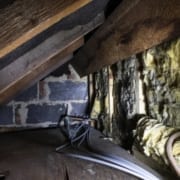
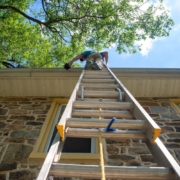

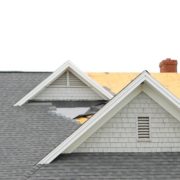

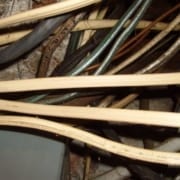

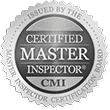




Leave a Reply
Want to join the discussion?Feel free to contribute!